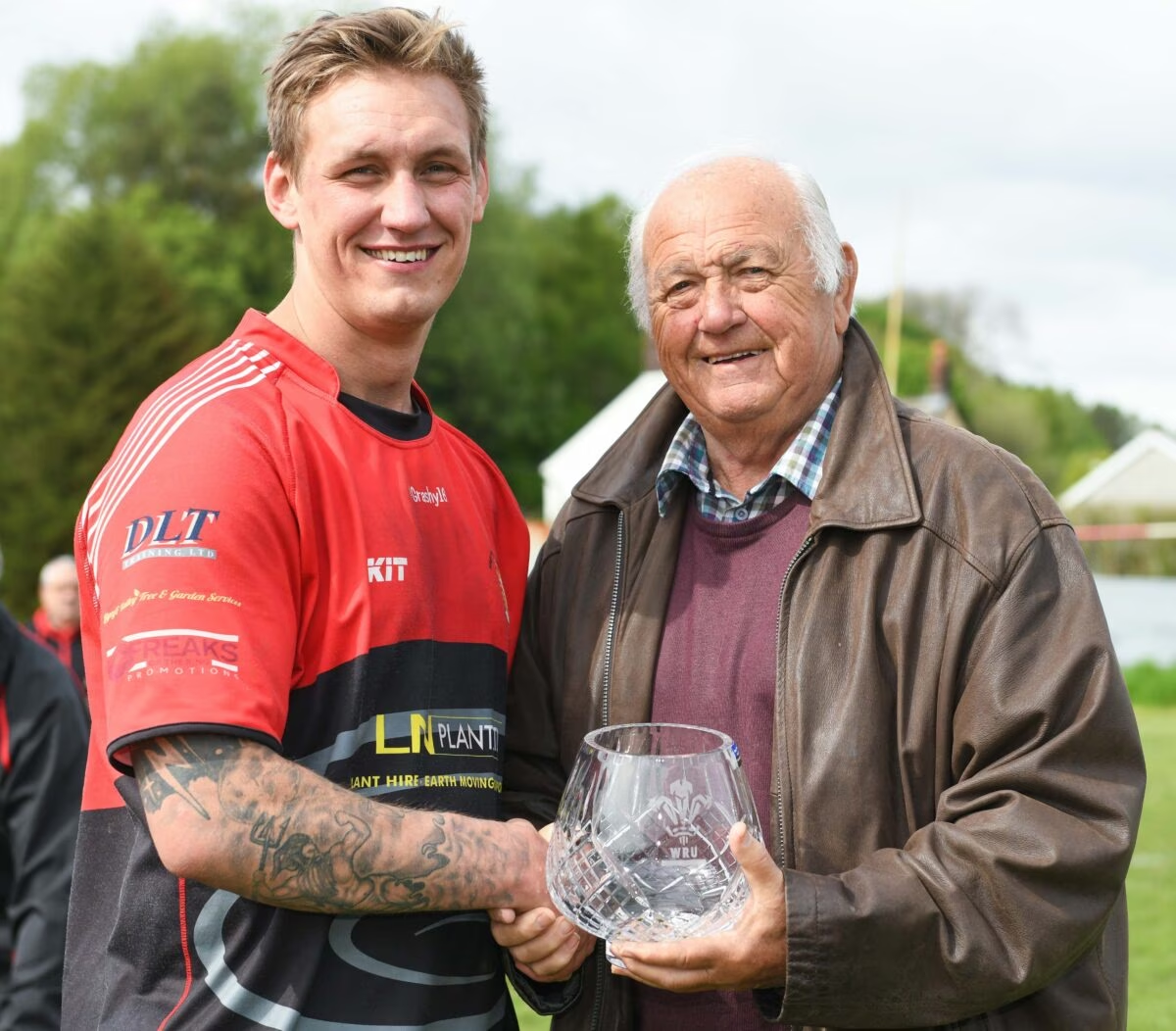Gerald Davies, the WRU President, has led the tributes to his former coach Clive Rowlands, who died at the weekend aged 85, describing him as “a titan of Welsh rugby”.
Davies played in the Triple Crown and Grand Slam sides that Rowlands coached in 1969 and 1971 and experienced first-hand the massive impact he had on Welsh rugby as the second National Coach.
“He was a titan of Welsh rugby, a commanding figure both on and off the field throughout his career. He helped to turn around Welsh rugby in a good way, and we all loved him for that,” said Davies.
“Clive had a very strong sense of his own Welshness that was born out of the close community he came from in Cwmtwrch. He managed to convey that feeling to the Welsh team and always wanted us to know who we were, and what we were representing.
“He got us to believe in ourselves, in the team and in him. His infectious personality complimented a talented group of players and we all bought into his passion for Wales and Welsh rugby.
“We identified with his vision of what it meant to play for Wales. Pride, passion and performance were so important to him, and he allowed us to feel good about ourselves and to believe in ourselves – we were like a club team representing Wales.
“He was an astute, strong character who could be intense and serious at times, but was always full of good humour. He made us realise what we could achieve through free expression on the field.”
Rowlands played 14 times for Wales as a player, captaining his country in every game. His first cap came against England in 1963 in Cardiff. Sixty years on, England will once again be coming to the Welsh capital this weekend for the opening game in the Vodafone Summer Series.
As well as playing for, captaining and coaching Wales, Rowlands was also a selector and served on the WRU General Committee for more than 20 years, finally becoming President in 1989. He also served as team manager to the Wales team that finished third in the inaugural World Cup in 1987 and was manager off the British & Irish Lions during their series winning tour to Australia in 1989.
Another former Grand Slam winning star who played under him was Barry John. He added his own tribute.
“What a Welshman he was. Welsh rugby, and the WRU in particular, owes him a huge debt of gratitude for his huge contribution to the game as player, coach and administrator,” said John.
“When he walked into the dressing room before a game he didn’t talk about what we were going to do and how we were going to play. All the chat was about the Welsh factor. He never overplayed it, although I remember being at Twickenham for a game against England when he told us it was such an important game ‘that even the dogs are barking in Welsh’.
“He had the belief that when he sent his team onto the field they all knew how lucky they were to be playing for Wales. In his eyes, 15 Welshmen were always better than any opposition.
“David Nash was the first National Coach, but his personality was a bit soft. Clive was the total opposite – abrasive, confident and Welsh to core. The coach was made for him, and he was made for the job.
“He was also fortunate that a group of good players turned up with a similar mindset, but his involvement was key to our success. With his death, a genuine chunk of Welsh life has gone.”
John’s world renowned half-back partner, Sir Gareth Edwards, was also quick to remember the huge role Rowlands played in his career.
“Wales has lost one of the giants of Welsh rugby without question. Clive was a great character who will never be forgotten,” said Edwards.
“He was an incredible coach, manager, president – you name, it he’s done everything for Welsh rugby. He could talk anybody into doing anything.
“His passion, desire and knowledge of the game meant he had all the attributes to make the most of the little time that we had in preparation. Clive became an integral part of my early years in the Welsh team.
“In his first season in charge we won the Triple Crown. He was very knowledgeable, but his passion was perhaps his greatest strength. Even the non-speaking Welsh players in the team knew what ‘calon (heart)’ meant.
“It was a small word, but it meant a lot and his favourite phrase just before a game was always – ‘Boys, boys Calon!’.
“Clive was a fantastic motivator and there’s no doubt that those early successes in the Seventies, when we started winning Triple Crowns and Grand Slams, it was down to his motivation and preparation.
“Clive was always very, very strong in getting his point across and you had to listen to him. But as a character, you couldn’t help laughing when you were with him. He loved the choir, he loved Upper Cwmtwrch – even the French players could say Cwmtwrch.
“He was a one off, something special and there won’t be many like him coming through now.”

